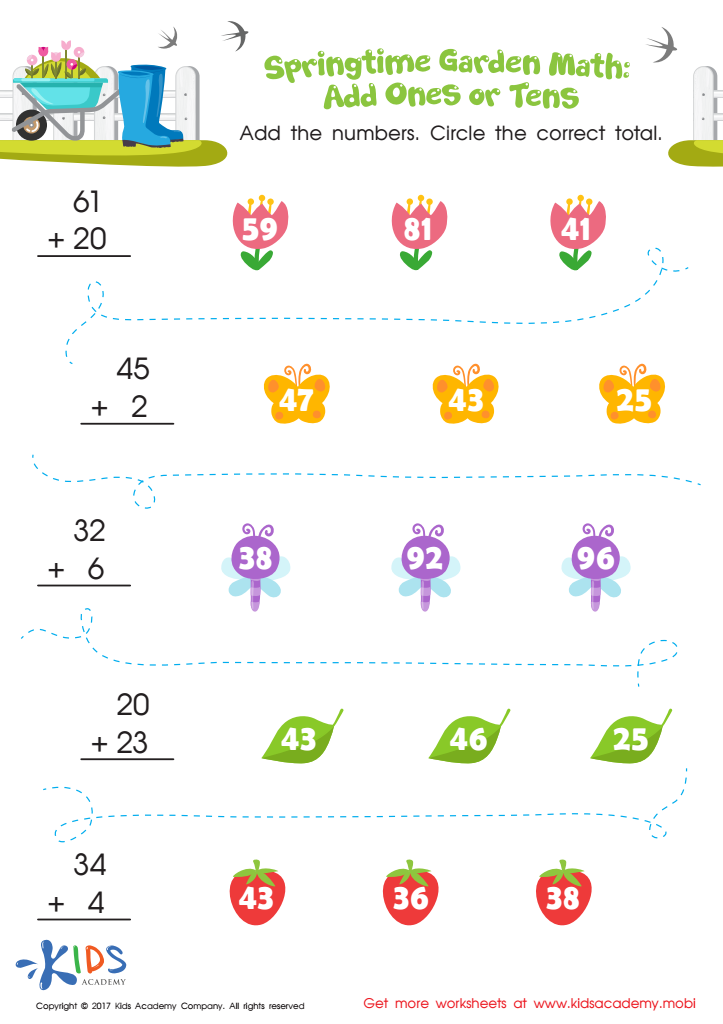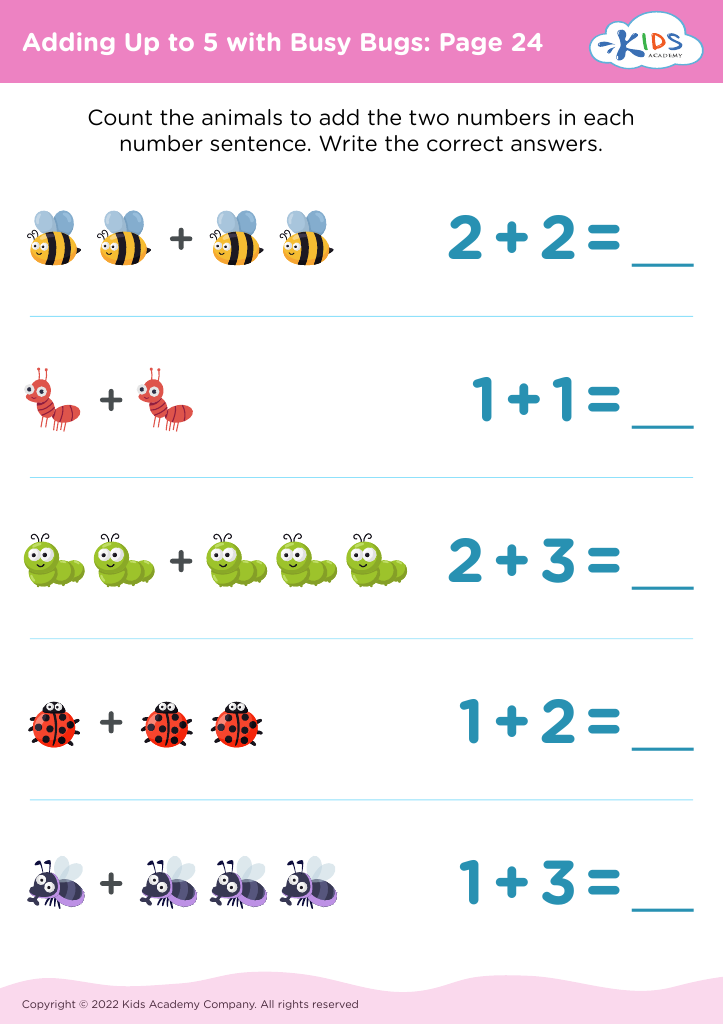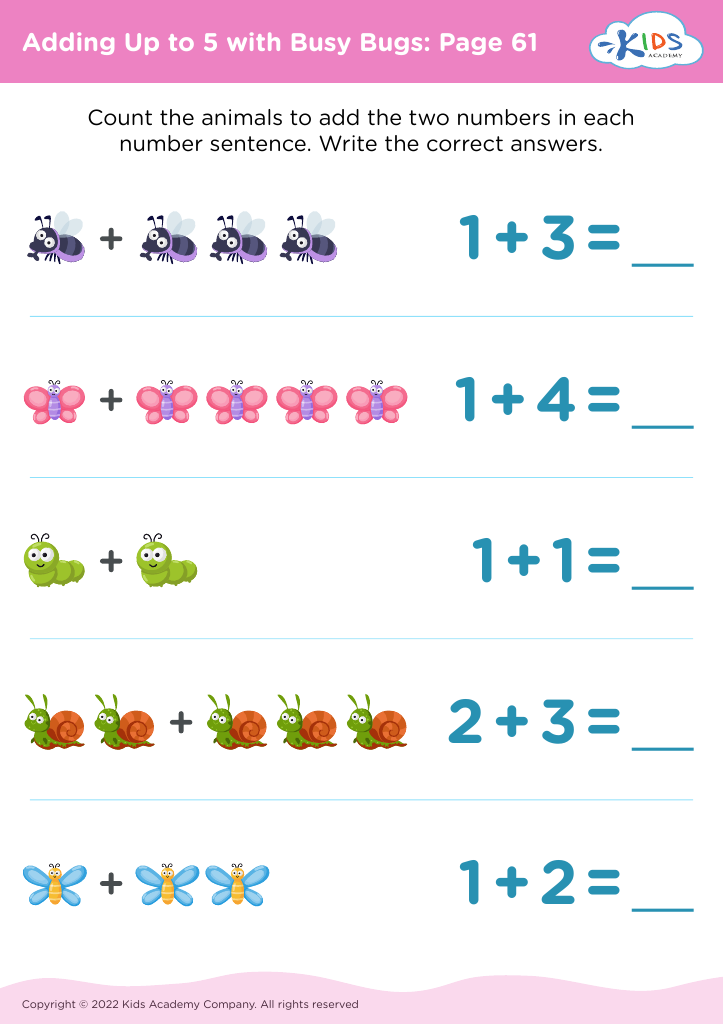Visualization skills Addition Worksheets for Ages 5-8
3 filtered results
-
From - To
Enhance your child's math journey with our Visualization Skills Addition Worksheets designed for ages 5-8. These engaging and interactive worksheets help young learners develop critical visualization skills, essential for mastering basic addition concepts. By visually representing addition problems, children gain a deeper understanding of numbers and their relationships. Each worksheet features colorful graphics and fun challenges to motivate and captivate learners while promoting essential cognitive skills. Ideal for both classroom and home use, these resources support foundational math skill development, paving the way for future academic success. Explore our extensive collection of worksheets and watch your child's confidence in math grow!


Springtime Garden Math Worksheet
Visualization skills are crucial for children ages 5-8, particularly in learning addition, as they form a foundational component of mathematical understanding. When children can visualize numbers and their relationships—whether through mental imagery, physical objects, or number lines—they enhance their ability to grasp abstract concepts, making math more accessible and enjoyable. This skill encourages learners to picture mathematical problems in their minds, which aids in solving complex problems and enhances critical thinking abilities.
Parents and teachers should prioritize visualization because it supports the development of other cognitive skills. When children visualize, they deepen their comprehension and retention of math concepts and build confidence in their abilities. Moreover, visualization assists in developing number sense, which is vital for more advanced mathematics later in life.
By cultivating these skills early on, caregivers can reduce math anxiety and promote a positive attitude towards the subject. Engaging methods, like using visual aids and interactive games, can make learning enjoyable and effective. Ultimately, promoting visualization in addition not only equips children with essential problem-solving tools but also nurtures a lifelong appreciation for math. In summary, fostering visualization skills in early learners lays the groundwork for their future success in mathematics and beyond.

 Assign to My Students
Assign to My Students

















